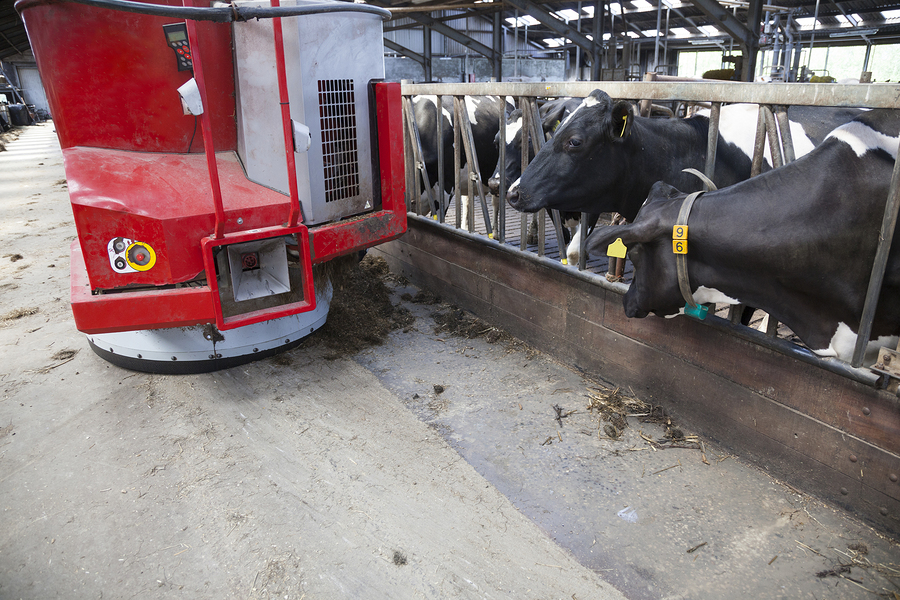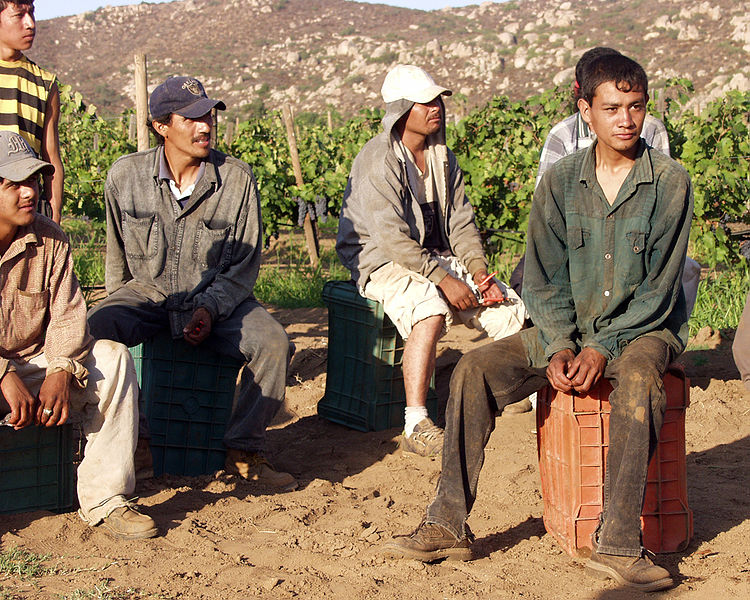
Robohub.org
How will farmers and robots work together?

Cows in stable wait for food from red feeding robot
Let’s assume, for a moment, that the vision I’ve laid out in this blog is ridiculously successful, and, over the next few decades, robotic devices take over all aspects of tending land and crops and handling material inputs and produce, and do it using increasingly sustainable practices that begin the process of retaining and enhancing biological diversity and reviving overworked soils. What’s left for farmers to do? Will there even be a need for humans on farms?
Well, in that improbable scenario, once the process has run its course and there’s no room left for qualitative improvement, and the machines are self-repairing and the algorithms are self-optimizing for constantly changing conditions, perhaps, strictly speaking, the answer would be “no, not really, not a need in the sense of an indispensable component.” A farm so equipped might run itself for months or years at a time without human intervention.
There are two problems with this, however. First, that level of automation is unlikely to happen in the lifetime of anyone reading this, and for the foreseeable future there will be need for human involvement in design and management decisions, making use of their own senses in combination with data to drive improvements, as well as filling in the gaps in the perceptual and physical capabilities of the machines.
The other objection has no expiration date. It’s about whether a human presence brings anything valuable to land husbandry, and ultimately whether people are allowed to forget where their food comes from, such that, if all of the machines were to suddenly shut down or break, no one would have a clue as to how to proceed. There will always be a need for humans who understand why the machines make the choices they do, and that understanding will always be best achieved when augmented by being physically present, walking fields, examining details with a magnifying glass, experiencing the sounds and smells directly, and lending a hand with some of the work, even when it could be done faster and more precisely by one of the machines, just to have the experience of participating in the process.

Without such people who remain deeply connected to the land and our use of it to act as interpreters, those who live in urban areas will have only feeds from the machines themselves and will probably lose interest, and perhaps also lose the will to maintain support for environmentally responsible policies in the face of periodic calls for austerity and ever-increasing efficiency. Actually, we’re faced with that challenge right now, so maybe there are already too few people on the land, or those who are engaged in farming don’t have the time for learning about all of the ‘extraneous’ factors not obviously relevant to their low-margin agribusiness operations, or for acting as interpreters for others.
If you enjoyed this article, you may also want to read:
- How regenerative agriculture and robotics can benefit each other
- How AR technology can help farmers stay relevant
- Robohub roundtable: Robotic bee swarms from Black Mirror – what’s hype, what’s real?
- Drought and desertification: How robots might help
- Keeping a robotic eye on pollution
See all the latest robotics news on Robohub, or sign up for our weekly newsletter.
tags: Automation, cx-Industrial-Automation, Environment-Agriculture, farming, opinion, Service Professional Field Robotics Agriculture, Social aspect



